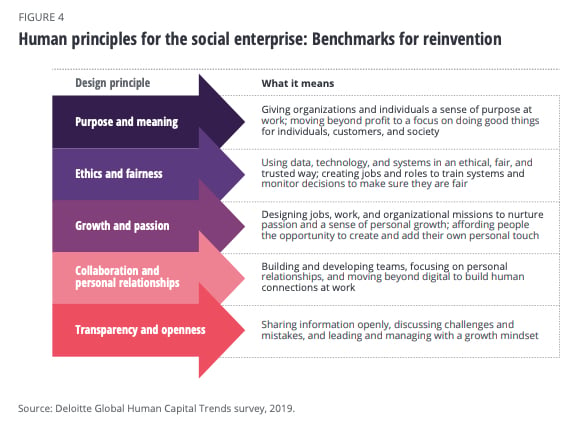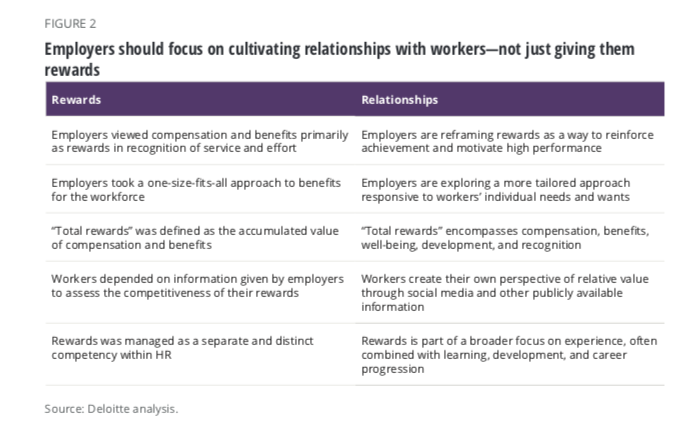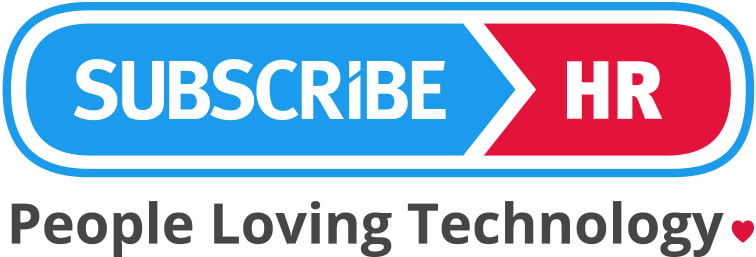Every year, Deloitte conducts an extensive study on the emerging and prevailing trends in human capital and the future of work. Each year, the post we write on our HR blog about that report is always one of the most popular. In 2019, the Human Capital Trends Report highlights an intensifying combination of economic, social, and political issues impacting HR and business leaders. These factors continue to put pressure on businesses to operate in a more socially oriented manner (a continuation of 2018's trend, which we covered in a previous HR blog post), and to reinvent their organisations around a more human focus. Let's take a look at the highlights of this year's report and how to prepare for the future of work.
Learning to Learn Again
There are several key takeaways in this year's report. One of them is the fact that faced with the relentless acceleration of artificial intelligence (AI), cognitive technologies, and automation, 86 percent of respondents believe they must reinvent their ability to learn. After nearly 10 years of economic growth since the GFC, and despite a concerted effort aimed at digital transformation, 84 percent of respondents also said they need to rethink their workforce experience to improve productivity. Also, in the face of new pressures to move faster and adapt to a far more diverse workforce, 80 percent believe they need to develop leaders differently.
Deloitte says that whilst these issues seem like timeless human capital problems, they highlight the fact that today these somewhat timeless issues are manifesting in a whole new context: the social enterprise. 2018's Global Human Capital Trends (GHCT) report was all about the rise of the social enterprise. That is, organisations whose mission combines revenue growth and profit-making with the need to respect and support its environment and stakeholder network. In 2019 and moving forward, Deloitte believes the pressures that have driven the rise of the social enterprise have (and will continue to) become even more acute. The market environment is forcing organisations to move beyond mission statements and philanthropy to learn to lead the social enterprise—and reinvent themselves around a human focus.
Social Enterprise is the Model of the Future
When CEOs were asked to rate their most important measure of success in 2019, the number-one issue they cited was 'impact on society, including income inequality, diversity, and the environment,' showing the urgency of this issue.
The report results may indicate that CEOs have recognised the issue, however, they certainly haven’t solved for it (yet). That’s because leading a social enterprise is not the same as practicing corporate social responsibility. Nor is it about engaging in social impact programs or defining a purpose or mission statement, although each of these are also important in their own right.
Business leaders are waking up to the fact that leading a social enterprise is about recognising that while businesses must generate a profit and deliver a return to shareholders, they must do so while also improving the lot of workers, customers, and the communities in which we live. In today’s world, with today’s societal challenges, fulfilling this aim requires businesses to undertake reinvention on a broad scale.
Deloitte’s global research on leadership in the Fourth Industrial Revolution also underscores the value CEOs and business leaders place on societal impact and connection, and its importance in measuring success when evaluating annual business performance. And this year’s GHCT report illustrates this continuing trend by showing both the accelerating growth in the role of the social enterprise, at the same time as supporting the social enterprise’s positive link to financial performance.
Business Imperatives for Reinvention
Deloitte organises the human capital trends for 2019 into three actionable categories that provide a foundation for reinvention in the face of change:
-
The first deals with the future of the workforce: how organisations should adapt to the forces restructuring job and work design, the open talent economy, and leadership.
-
The second deals with the future of the organisation: how teams, networks, and new approaches to rewards are driving business performance, and
-
The third deals with the future of HR: how the function is stepping up to the challenge of redesigning its capabilities, technologies, and focus to lead transformation in HR and across the enterprise.
This year's report also proposes five benchmarks for reinvention to undertake in the transition to a social enterprise.

Top 10 Trends From 2019's Report
As we approach the end of the second decade of the 21st century, the accelerated rate of change precipitated by the digital revolution continues to disrupt the way we live and work in ways that we often don't (or can't) anticipate. In 2019, there is no question that the Fourth Industrial Revolution is bringing disruption to the political, economic, and social fabric. No one can deny that this disruption is having an impact on work, workers, and employers as never before. Deloitte's 2019 study polled nearly 10,000 respondents in 119 countries and the results point to the following ten factors as the most important businesses need to consider if reinvention is needs to be put on your agenda.
-
The alternative workforce: It’s now mainstream.
For years, many considered contract, freelance, and gig employment to be 'alternative work,' options supplementary to full-time jobs. Today, this segment of the workforce has grown and gone mainstream even as talent markets have tightened. Leading organisations need to strategically assess all types of work arrangements in their plans for growth. Best practices to access and deploy alternative workers are just now being invented.
-
From jobs to superjobs: How tech will impact your role.
A vast majority of organisations said they expect to increase or significantly increase their use of AI, cognitive technologies, robotic process automation, and robotics over the next three years. As organisations adopt these technologies, they’re finding that virtually every job must change, and that the jobs of the future are more digital, more multidisciplinary, and more data-and information-driven. Paradoxically, to be able to take full advantage of technology, organisations must redesign jobs to focus on finding the human dimension of work. This will create new roles that we call 'superjobs': jobs that combine parts of different traditional jobs into integrated roles that leverage the significant productivity and efficiency gains that can arise when people work with technology.
-
Leadership for the 21st century: The intersection of the traditional and the new.
Developing leaders is the perennial issue of our time. Eighty percent of survey respondents said that leadership is an important or very important issue, and 80 percent of respondents said that '21st- century leaders' face unique and new requirements. To be effective in the 21st century, leaders must take a nuanced approach to pursuing traditional business goals: an approach that takes into account the new context in which such goals must be achieved. Leaders must have the capacity to leverage critical new competencies (including leading through change, embracing ambiguity and uncertainty, and understanding digital, cognitive, and AI-driven technologies) to get there.
-
From employee experience to human experience: Putting meaning back into work.
One of the biggest challenges identified this year is the need to improve what is often called the 'employee experience'. Eighty-four percent of our survey respondents rated this issue important, and 28 percent rated it urgent. But the concept of employee experience falls short in that it fails to capture the need for meaning in work that people are looking for. Deloitte sees an opportunity for employers to refresh and expand the concept of 'employee experience' to address the 'human experience' at work - building on an understanding of worker aspirations to connect work back to the impact it has on not only the organisation, but society as a whole.
-
Organisational performance: It’s a team sport.
The shift from hierarchies to teams is well underway. Thirty-one percent of survey respondents said they now operate mostly or almost wholly in teams, with another 65 percent saying they are mostly hierarchical but with some cross-functional team-based work. However, most organisations have not yet refreshed leadership, job design, and rewards to adapt to the new structural framework. Deloitte's research shows that many leaders do not know how to operate in teams and have not yet adopted the team model of engaging with each other. Deeper in the enterprise, many organisations are still struggling to build programs and incentives that support teaming as well. In 2019, technology is making team models of work easier - organisations must now refresh the rest of our talent practices to keep up.
-
Rewards: Closing the gap.
Organisations are exploring a growing array of perks and rewards to motivate their people. But they are not keeping up: in this year's survey results only 11 percent of respondents told us their rewards systems were highly aligned with their organisational goals, and 23 percent reported that they did not know what rewards their workers value. How can organisations develop rewards that align with more agile models for performance measurement and management, and at the same time address workers’ legitimate expectations and needs? A focus on building relationships with workers (and eschewing external benchmarking in favour of curating a differentiated suite of rewards) can help organisations close the gap.
-
Accessing talent: It’s more than acquisition.
In this 11th year of the economic recovery, recruiting has become harder than ever. As the job market remains competitive and organisations’ skills requirements undergo rapid change, it’s time for organisations to think about how they can continuously 'access talent' in multiple ways. This means mobilising internal resources, finding people in the alternative workforce, and strategically leveraging technology to augment sourcing and boost recruiting productivity.
-
Learning in the flow of life: A new approach.
The number-one trend for 2019 is the need for organisations to change the way people learn. 86 percent of respondents cited this as an important or very important issue. It’s not hard to understand why. Evolving work demands and skills requirements are creating an enormous demand for new skills and capabilities, while a tight labour market is making it challenging for organisations to hire people from outside. Within this context, Deloitte sees three broader trends in how learning is evolving; it is becoming more integrated with work; it is becoming more personal; and it is shifting (slowly) toward lifelong models. Effective reinvention along these lines requires a culture that supports continuous learning, incentives that motivate people to take advantage of learning opportunities, and a focus on helping individuals identify and develop new, needed skills.
-
Talent mobility: Winning the war on the home front.
As organisations globalise and compete aggressively for top talent, the importance of internal, enterprise wide talent mobility has become paramount. Organisations can no longer expect to source and hire enough people with all the capabilities they need; they must move and develop people internally to be able to thrive. A new set of norms governing internal mobility is needed to do this well. At leading organisations, mobility should be perceived as a natural, normal progression instead of as a major change in one’s career; opportunities to move should be extended to workers at all levels, not just managers and team leaders. Technology should enable a streamlined mobility process for moves between functions, jobs, and projects as well as geographies.
-
HR cloud: A launch pad, not a destination.
Cloud computing has gone mainstream, and organisations have spent millions on new platforms to make HR systems more engaging, personalised, and data-driven. Yet while cloud systems have gone a long way toward integrating the messy back office of HR, they aren’t all that’s needed to better support innovation, raise employee productivity, and lower cost. In 2019, organisations must rethink their HR technology strategy, considering cloud as a foundation and exploring innovative new platforms, automation, and AI-based tools to complement their core systems.

The reality on the ground, in boardrooms, by water coolers and in virtual meeting rooms across the globe, is that many organisations are not ready to address the changes this year's 10 trends demand. Nor are do they have the capacity to undertake the reinvention required to manage work and prosper going forward. That is why, this year, Deloitte also offers feedback as part of their annual report, not only about the why and the what, but also the how. Depending on your organisation’s readiness and need to change, they propose that reinvention can happen in one of three ways:
-
Refresh: Update and improve the way things happen now.
-
Rewire: Create new connections that change the strategic direction.
-
Recode: Start over and design from scratch.
Either way, there are two aspects of the reinvention that remain constant:
-
It will need to involve technology in some way - there is no path to reinvention without it, and
-
It has to be a bold enough change to meet the challenges that the social enterprise presents because this process is NOT about tinkering at the edges.
The bottom line from this year's report is this: the north star that your organisation needs to be consistently informed by (and founded on) is a renewed human focus on operating in a manner where profits meet purpose, talent trumps technology, and the social enterprise reigns supreme.
Every year, a handful of well researched reports about HR and the changing nature of work are published. We understand that you don't always have the time to read multiple 100 page reports, even if they're full of great intel that you need to know about. That's why we've done the hard work for you and summarised the highlights from the most recent version of the most relevant reports for HR Professionals. If you want to get your hands on the important HR metrics, statistics and trends that you need to stay on top of throughout 2019 and into the future, this White Paper contains them all. Simply click on the button below to access the report.


